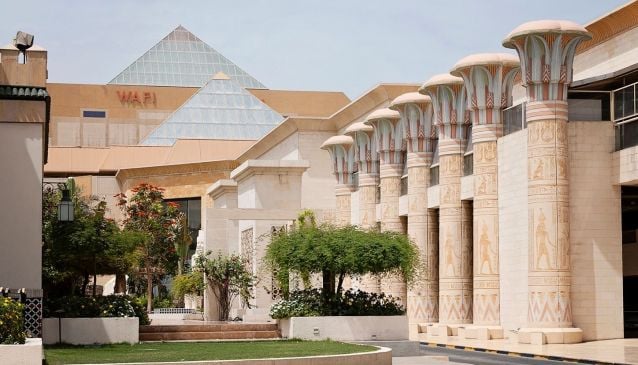Definition and Purpose of REITs
It is a trust that owns and operates income-generating real estate. REITs were first introduced in the United States in 1960 to provide small investors access to real estate investments. REITs are now popular in many countries, including Kuwait, to invest in real estate without the hassle of owning and managing property.
Also, REITs provide investors with a way to invest in real estate while also providing liquidity. REITs allow investors to buy and sell units in the trust on a stock exchange. REITs distribute at least 90% of their profits to unit holders as dividends, making them an attractive investment for income-seeking investors.
REIT Structure and Functioning
REITs in Kuwait are similar to REITs in other countries. They are trusts that own and operate income-generating real estate. REITs in Kuwait are by the Capital Markets Authority (CMA) and are required to comply with Shariah law.
Most of a REIT’s assets must be real estate assets, and revenues generated from assets (primarily rental income) are distributed to unit holders regularly.
Here are some key features of REITs in Kuwait:
- REITs are traded on the stock exchange, providing liquidity for investors.
- REITs are required to distribute at least 90% of their profits to unit holders in the form of dividends.
- Professional management companies manage REITs.
- Most of a REIT’s assets must be real estate assets.
- Revenues generated from assets (primarily rental income) are distributed to unit holders regularly.
Kuwait REIT Market Analysis
Current Market Trends
- The Kuwaiti Real Estate Investment Trusts (REITs) market is experiencing steady growth.
- Boursa Kuwait provides a transparent platform for trading REITs in compliance with Sharia and the Articles of Association of each REIT.
- REIT funds are traded through licensed brokers registered with the Capital Markets Authority of Kuwait.
- The local real estate market has seen increased demand for commercial real estate.
- The Capital Markets Authority of Kuwait has been working to promote the development of the REIT market by introducing new regulations and guidelines.
Comparison with Regional Markets
- The GCC REIT market will grow from USD 10.37 billion in 2024 to USD 15.40 billion by 2029.
- Saudi Arabia’s Capital Market Authority has been actively promoting the development of the REIT market, which has increased the number of REITs listed on the stock exchange.
- The UAE has also seen growth in the REIT market, with several REITs listed on the Dubai Financial Market.
- The Kuwaiti REIT market is still relatively small compared to other regional markets. Still, it has been growing steadily and offers opportunities for investors seeking local real estate market exposure.
Investing in Kuwaiti REITs
How to Invest in REITs
Investing in Kuwaiti REITs is a relatively simple process, with different ways to go about it. Here are some ways to invest in Kuwaiti REITs:
- Through a licensed broker: Investors can buy and sell REITs through licensed brokers registered with Boursa Kuwait.
- Through a REIT fund: Investors can invest in a REIT fund that invests in all types of real estate developed and income-generating within Kuwait.
- Through a bank: Some banks offer REITs as investment products.
Benefits for Investors
Investing in Kuwaiti REITs can provide several benefits for investors, including:
- Diversification: REITs can expose investors to a diversified portfolio of real estate assets.
- Liquidity: Unlike traditional real estate investments, REITs can provide investors with liquidity.
- Regular Income.
- Professional Management.
Regulatory Environment
Kuwait has a well-established regulatory framework for Real Estate Investment Trusts (REITs). The Capital Markets Authority (CMA) is the regulatory body that oversees the establishment and operation of REITs in Kuwait.

Legal Framework for REITs
The legal framework for REITs in Kuwait is governed by Law No. 7 of 2010 and its executive regulations. The law clearly defines REITs and outlines the requirements for their establishment and operation.
Some of the essential legal requirements for REITs in Kuwait are:
- A minimum of 50% of the assets of the REIT must be invested in real estate assets.
- At least 90% of the net income of the REIT must be distributed to unit holders.
- The REIT must have a minimum capital of KWD 10 million.
Sharia Compliance in REITs
Sharia compliance is an essential aspect of REITs in Kuwait. The CMA requires that all REITs comply with Sharia principles, and there are specific guidelines for establishing and operating Sharia-compliant REITs.
Some of the essential requirements for Sharia compliance in REITs are:
- The REIT must invest in real estate assets that are Sharia-compliant.
- The REIT must not engage in any activities that Sharia prohibits.
- The REIT must have a Sharia Supervisory Board that oversees its compliance with Sharia principles.
REITs and Economic Impact
Contribution to the Local Economy
Real Estate Investment Trusts (REITs) have a significant impact on the local economy in Kuwait. The real estate sector greatly contributes to the country’s economy and development projects, and REITs play a crucial role in the sector’s growth and expansion.
Here are some key ways that REITs contribute to the local economy:
- Provide a source of financing for real estate development projects
- Generate employment opportunities in the real estate sector
- Increase liquidity in the local market
REITs are an attractive investment option for both local and foreign investors, and their presence in the local market has helped to stimulate economic growth and development.
Impact on Real Estate Sector
REITs have had a significant impact on the real estate sector in Kuwait. Here are some key ways that they have affected the industry:
- Encouraged the development of new real estate projects
- Improved access to financing for real estate developers
- Increased competition in the real estate market
The presence of REITs in the local market has helped to professionalize the real estate sector and improve its overall performance. Their ability to provide financing for real estate development projects has also helped spur industry growth.
Key Players in Kuwait REITs
Prominent REIT Funds
KFH Capital REIT Fund is one of Kuwait’s most prominent REIT funds. Kuwait Finance House Group, a leading Islamic financial institution in Kuwait, manages it. The fund invests in real estate assets across Kuwait and the wider GCC region, providing investors with a diversified portfolio of income-generating properties.
Influential Financial Institutions
Kuwait Finance House Group is one of Kuwait’s most influential financial institutions, with a strong track record of success in the Islamic finance sector. The group’s Chief Executive Officer has been instrumental in driving the company’s growth. The group strongly focuses on real estate investment and has been actively promoting the development of the REIT market in Kuwait.
Other influential financial institutions in Kuwait include the Gulf Bank, the National Bank of Kuwait, and the Commercial Bank of Kuwait.
Sector Focus and Diversification
Real Estate Investment Trusts (REITs) in Kuwait are expected to focus on sector specialization in the coming years. This will enable investors to invest in specific asset classes within the real estate spectrum and help diversify the REIT portfolio.
Commercial and Industrial REITs
Commercial and industrial REITs are the most popular investment options in Kuwait. These REITs will focus on the retail, hospitality, and office sectors, which will grow in the coming years. Investors will be able to invest in these REITs and benefit from the growth of these sectors in Kuwait.
Diversification Strategies
Diversification is a crucial strategy for REITs in Kuwait. By diversifying their portfolios, REITs can reduce risk and increase their returns. Some of the diversification strategies that REITs in Kuwait will adopt include:
- It invests in various sectors in Kuwait, such as healthcare, education, and logistics, enabling REITs to benefit from the growth of these sectors in the coming years.
- It is investing in real estate sectors that will grow in the coming years—for example, in the residential sector, which will increase due to the increasing demand for housing in Kuwait.
- They invest in different real estate assets, such as land, buildings, and warehouses, enabling REITs to diversify their portfolios and reduce risk.
Frequently Asked Questions
What are the leading REITs available for investment in Kuwait?
- Kuwait Real Estate Investment Consortium (KREIC)
- Kuwait Real Estate Company (AQARAT)
- Al-Mazaya Holding Company
- Mabanee Company SAK
- Kuwait Finance House Real Estate Investment Trust (KFH REIT)
How has KFH REIT performed in the recent financial quarters?
KFH REIT has performed well in the recent financial quarters, with a net profit of KWD 2.3 million in Q3 2023. It has also distributed a cash dividend of 4.5 fils per share for the same quarter, totaling KWD 2.25 million.
What are the distinguishing features of BAITAKREIT compared to other Kuwaiti REITs?
- BAITAKREIT is the first Sharia-compliant REIT in Kuwait.
- It invests in income-generating properties in Kuwait, such as office buildings, commercial centers, and residential buildings.
- BAITAKREIT aims to provide its investors with a stable income stream through regular dividend payments.
Can you invest in Kuwaiti REITs through money market funds?
Yes, investors can invest in Kuwaiti REITs through money market funds. However, it is essential to note that the returns on such investments may be lower than those from direct REIT investments.
In the context of Kuwait, are investments in REITs halal?
Yes, REIT investments are halal in Kuwait as long as the REITs are Sharia-compliant.
What are the factors considered when choosing a REIT for investment in Kuwait?
When choosing a REIT for investment in Kuwait, investors should consider:
- The quality and location of the properties in which the REIT invests
- The management team of the REIT
- The dividend yield and frequency of dividend payments












